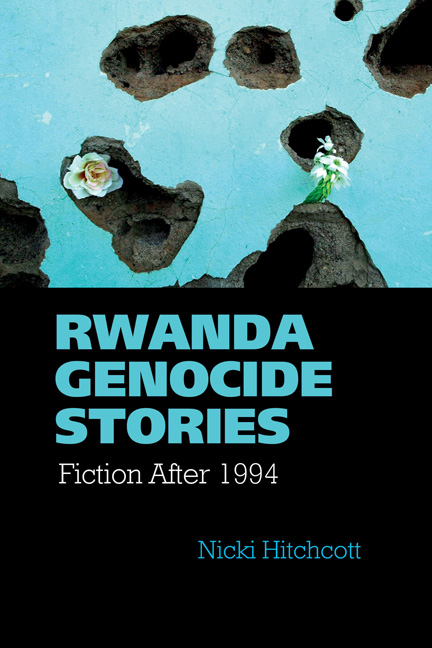6 - Perpetrators
Summary
In ‘Sa voix’ [‘His voice’], one of the short fictional pieces that form part of her travel narrative L'Ombre d'Imana, Tadjo tells the story of Isaro, whose husband Romain hanged himself when he was accused of murdering a woman and her three children. Some years later, Isaro receives a phone call from a man who speaks with the voice of her dead husband. Excited to hear again the voice of the man she loved, Isaro arranges to meet the stranger, hoping that her husband's spirit has returned from the dead. The stranger turns out to be Nkuranya, the same man whose wife and children were allegedly killed by Romain. In creating a fictional survivor with the voice of a dead perpetrator, Tadjo confounds the distinction between victim and perpetrator, fusing them together in a single character. At the same time, she emphasizes the very intimate nature of the 1994 Rwanda genocide and its afterlife: as friends became enemies during the 100 days of horror, so enemies have become friends in post–genocide Rwanda.
One of the distinguishing features of the genocide in Rwanda was the mass participation of ordinary citizens in the killings. It is difficult, if not impossible, to know exactly how many people actually took part in acts of genocide in 1994. Estimated numbers range from tens of thousands to as many as 3 million people slaughtering between 800,000 and 1 million victims (Straus, 2004: 85). Indeed, the extraordinarily high number of civilians involved, directly or indirectly, in acts of torture, mutilation, killing and rape, often accompanied by looting and damage to property was, as a report by African Rights and Redress reminds us, ‘unprecedented in the world’ (6). Describing her visit to the overcrowded Rilima prison in 1998, Tadjo writes that:
Toute la société est représentée: anciennes autorités politiques, hommes d'affaires, fonctionnaires, cadres, enseignants, artistes, élèves, étudiants, paysans, médecins, femmes, prêtres, pasteurs, religieuses … (2000: 112)
[The whole of society is represented here: former politicians, businessmen, civil servants, managers, teachers, artists, schoolchildren, students, peasant farmers, doctors, women, priests, pastors, nuns … (2002: 98)]…
- Type
- Chapter
- Information
- Rwanda Genocide StoriesFiction After 1994, pp. 160 - 190Publisher: Liverpool University PressPrint publication year: 2015



